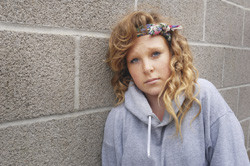Understanding transitions to adulthood
Studies have shown that young people in public care in Europe are at risk of poor outcomes in their adult life. This is evident in relationship indicators such as education, health, homelessness and crime. In order to properly address this, research needs to delve into young people's everyday lives. As such, the EU-funded 'ELTA everyday lives: (Re) conceptualising transitions to adulthood for young people in care' (ELTA) project addressed these concerns through training-through-research, which focused on theoretical and methodological development. By creating a biographical (re)conceptualisation of transitions in young people's lives, it aimed to arrive at cross-national understandings of outcomes. The work entailed a critical review, a case study and comparative narratives, as well as 151 interviews. Comparisons were drawn regarding everyday life of young people not in care. Although many similarities were found, one main difference is the difficulty in making and keeping friends. Dissemination of results is ongoing via scientific publications and conferences. A better adaptation of care practices toward young people's experiences, needs and aspirations is expected as a result. The project will also contribute significantly to closing a gap in critical knowledge on the issue.



